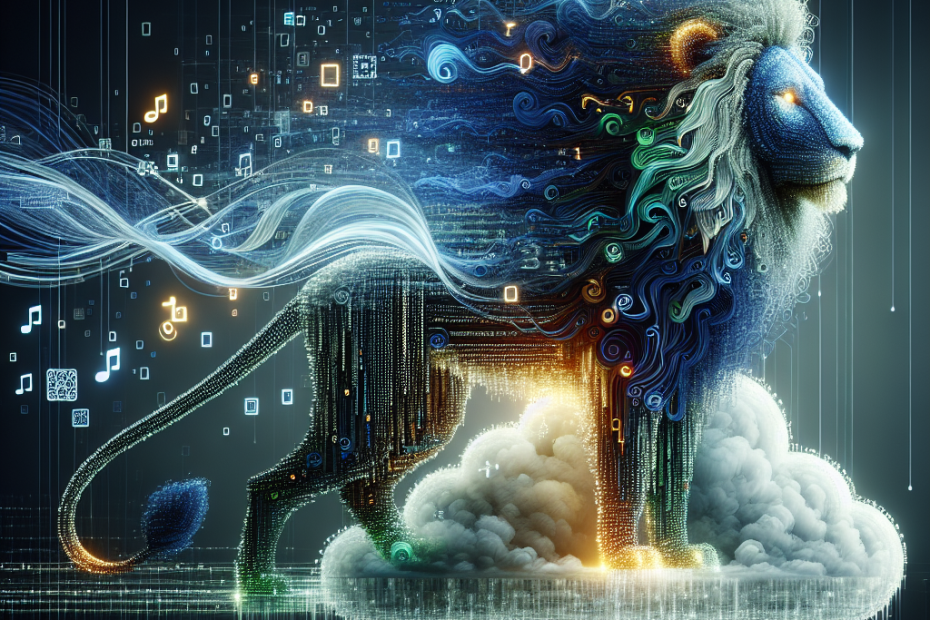Cloud-Based Generative AI for Entertainment and Media Industries
The entertainment industry is undergoing a significant transformation, driven by advancements in technology, particularly artificial intelligence (AI). One of the most promising technologies to emerge from this trend is cloud-based generative AI. In this blog post, we will delve into the world of generative AI, its applications in the entertainment industry, and the benefits it offers to the media sector.
Introduction
Generative AI refers to a subset of AI models that can create new, original content based on patterns learned from existing data. This technology has the potential to revolutionize various industries, including entertainment and media. With cloud-based generative AI, content creators can produce high-quality, personalized, and engaging content with unprecedented efficiency.
Advantages of Cloud-Based Generative AI
Scalability
Cloud-based generative AI offers unparalleled scalability, allowing content creators to generate vast amounts of content quickly and efficiently. This is particularly useful for large-scale productions, such as movies, TV shows, or video games. With the ability to scale up or down depending on production needs, cloud-based generative AI provides a flexible solution for studios and production companies.
Personalization
Generative AI can create personalized content tailored to individual preferences. For example, a movie streaming service can use generative AI to recommend movies based on user viewing history and ratings. This level of personalization enhances the viewer’s experience and increases engagement with the platform.
Cost-Effective
Cloud-based generative AI reduces the need for expensive computational resources and personnel. This makes it an attractive option for smaller studios or independent filmmakers who cannot afford large-scale infrastructure. With cloud-based generative AI, production companies can reduce costs without sacrificing quality or compromising on creativity.
Applications in Entertainment Industry
- Content Generation: Cloud-based generative AI can be used to generate entire scripts, dialogues, or even characters. This can help reduce production time and costs associated with human writers and actors.
- Visual Effects: Generative AI can create realistic visual effects, such as special effects, motion graphics, or animation. This technology has the potential to transform the visual aspects of films and TV shows, creating a more immersive experience for audiences.
Impact on Media Sector
Enhanced Storytelling
Generative AI can help writers and directors develop new storylines, characters, and plot twists based on audience preferences. By leveraging this technology, creators can produce content that resonates with their target audience and stands out in a crowded market.
Improved Production Efficiency
Cloud-based generative AI streamlines the production process by automating routine tasks and providing valuable insights for producers, directors, and editors. This allows teams to work more efficiently, reducing the time spent on post-production and enabling them to focus on creative elements of filmmaking.
Challenges and Limitations
While cloud-based generative AI offers many benefits, it also comes with some challenges:
- Data Quality: Generative AI requires high-quality training data to produce accurate results. Poor data quality can lead to subpar output.
- Bias and Fairness: Generative AI models can inherit biases from the training data, potentially perpetuating existing inequalities.
Addressing these challenges will be crucial for the successful adoption of cloud-based generative AI in the entertainment industry. By developing more sophisticated algorithms and ensuring that training data is diverse and representative, creators can build more equitable and effective systems.
Real-World Examples
The use of cloud-based generative AI is already being seen in various industries. For example, Adobe has been using this technology to create personalized movie trailers and promotional materials for its film clients. Similarly, music streaming services like Spotify are leveraging generative AI to recommend playlists tailored to individual tastes.
Conclusion
Cloud-based generative AI has the potential to transform the entertainment industry and media sector in significant ways. By leveraging this technology, content creators can produce high-quality, personalized, and engaging content more efficiently and effectively than ever before. As with any emerging technology, it is essential to address challenges and limitations head-on to ensure responsible innovation.
Frequently Asked Questions
1. What is cloud-based generative AI?
Cloud-based generative AI refers to a type of artificial intelligence that uses cloud computing resources to generate new content based on patterns learned from existing data.
2. How does cloud-based generative AI work?
Cloud-based generative AI works by using machine learning algorithms and vast amounts of training data to learn patterns and relationships in the data. This allows it to generate new content that is similar yet distinct from the original data.
3. What are some applications of cloud-based generative AI in the entertainment industry?
Some potential applications of cloud-based generative AI in the entertainment industry include script generation, visual effects, music composition, and personalized content recommendations.
4. What are some benefits of using cloud-based generative AI in media production?
Benefits of using cloud-based generative AI in media production include reduced costs without compromising on quality or creativity, improved efficiency, enhanced storytelling, and increased personalization for audiences.
5. How can I get started with cloud-based generative AI?
To get started with cloud-based generative AI, you need to understand the basics of machine learning, data preparation, and algorithmic design. It’s recommended that beginners start by exploring publicly available resources, such as tutorials, blogs, or online courses, which provide hands-on experience and insights into the technology.
By embracing cloud-based generative AI, creators can unlock new levels of creativity, efficiency, and audience engagement in the entertainment industry. As this technology continues to evolve, we can expect to see even more innovative applications that transform the way stories are told and experiences are delivered.
